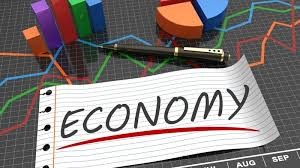In today’s rapidly changing social and economic landscape, the role of leaders in organizations has become increasingly complex. Leaders are tasked with maximizing resources, achieving corporate objectives, and navigating the delicate balance between economic value and political value. But what do these terms really mean, and how do they impact employees and the overall success of a company?
Understanding Economic Value
Economic value refers to the tangible contributions that employees make to help organizations achieve their goals. It encompasses the work individuals do and the results they deliver, which are often rewarded with financial compensation. When leaders prioritize economic value, they focus on assembling teams with the necessary skills and expertise to drive success. The emphasis is on achieving corporate objectives and maximizing resources for the benefit of the organization as a whole.
The Influence of Political Value
On the other hand, political value pertains to how employees are utilized to further a leader’s personal or organizational political agenda. This can involve leveraging relationships, aligning with specific individuals or groups, and making decisions based on personal preferences rather than objective criteria. While economic value is based on merit and performance, political value introduces a subjective element that can impact decision-making processes and potentially undermine the overall success of a company.
The Impact of Leadership Choices
The way leaders prioritize economic and political value can have far-reaching consequences for both individuals and organizations. When leaders focus on economic value, they seek employees who can deliver results and contribute to the achievement of corporate objectives. This approach promotes fairness, meritocracy, and a results-oriented culture where individuals are recognized and rewarded for their contributions.
Conversely, when leaders prioritize political value, decisions may be motivated by personal relationships or hidden agendas. This can lead to a lack of transparency, favoritism, and a culture that values loyalty over competence. In such environments, employees may feel undervalued, and the overall success of the organization may be compromised.
Spotting the Difference: Good Leadership
So how can you identify whether your leader prioritizes economic value or political value? Here are some key indicators:
1. Department or Company Objectives
Good leaders prioritize the working relationship within the context of department or company objectives. They use inclusive language such as “we as a team” or “our objectives are.” This indicates a focus on collective success rather than personal agendas.
2. Open and Consistent Communication
Leaders who value economic contributions are transparent and open in their communication. They share information openly and directly, without withholding critical details. This fosters trust and encourages collaboration among team members.
3. Cross-Departmental Perspectives
Engage with co-workers from different departments and seek their perspectives. Are they experiencing fair treatment and equal opportunities? Do they perceive any favoritism or political maneuvering within your department? Gathering insights from others can shed light on the overall culture and leadership approach.
4. Transfer Opportunities
Consider whether your co-workers actively seek transfer opportunities into your department. If there is an unwritten rule to avoid such moves, it could indicate a lack of economic value placed on your team. Leaders who prioritize economic value attract talent and provide growth opportunities for their employees.
5. Leadership Transitions
Reflect on what might happen if your leader were to be replaced. Would the new leader clean house and assemble a new team due to a perceived lack of economic value? This can be an indication of the priority placed on results and the overall success of the organization.
The Importance of Self-Reflection
In these uncertain times, it is crucial to evaluate the leadership approach within your company or department. Understanding how you are valued can provide insight into your future prospects within the organization. Companies need leaders who prioritize economic value over personal political agendas, especially during times of economic and social uncertainty.
Take the opportunity for self-reflection and consider the following questions:
- Does your leadership prioritize corporate goals or personal agendas?
- How are employees treated within your organization? Is economic worth valued over political worth?
- Are you valued for the contributions you make to the organization’s success or for personal gain?
By examining your leader’s actions, words, and deeds, you can gain a better understanding of your position within the company and make informed decisions about your future.
Navigating the Future
As you navigate the complexities of your professional journey, it is essential to align yourself with leaders who prioritize economic value and foster a culture of meritocracy. By being aware of the leadership approach within your organization, you can make informed decisions about your career path and ensure that your contributions are recognized and valued.
Remember, the success of an organization ultimately depends on the collective efforts of its employees and the leadership that guides them. By prioritizing economic value over political value, leaders can create an environment that fosters growth, innovation, and sustainable success for all.
So, as you reflect on your current situation, ask yourself: Will you be valued for the economic worth you provide or the political worth for personal agendas? Your answer will shape your future and guide you towards the path that aligns with your values and aspirations.
